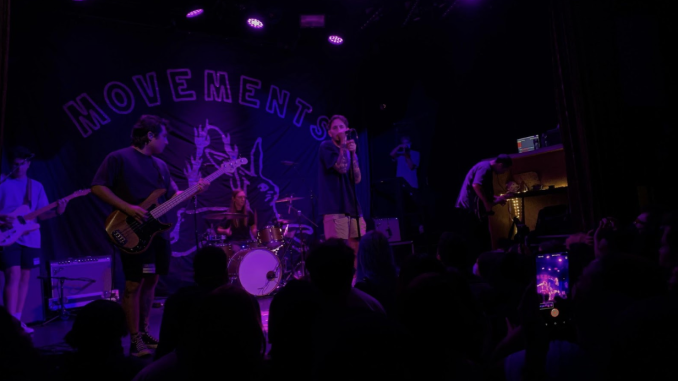
BY ILIANA CALDERON
In 2020, the COVID-19 pandemic changed the music business. Venues closed their doors, and left owners and workers worried about the future of their business.
Throughout the State Of New York, each neighborhood and borough suffered through cases of COVID going up and having to rely on help from the government. According to the State Comptroller’s office, over 19.3 percent of employment in Brooklyn dropped by the second half of 2020, leaving residents to rely on unemployment. It was also shown that Brooklyn had the highest cases of COVID-19 throughout 2020.
In March of 2020, when the COVID-19 pandemic peaked, doors of arts and entertainment were forced to close. By December of 2020, over 66 percent of employment in the arts and entertainment industry declined. This was the “largest decline in the City’s economy.”
The budgets for music venues have been decimated. They relied on the internet, having live streamed events and pre recorded events. They also focused on renovating their buildings. Dr. Anthony Fauci announced that by fall of 2021, venues were permitted to open their doors.
Moving forward in 2021, music venues needed to change their rules. Music venues, such as The Bowery Ballroom, Music Hall Of Williamsburg, and Brooklyn Steele, passed a rule in which all attendees must wear a mask and show proof of their COVID vaccine pass. This was to make sure attendees were practicing safety rules when coming to a show.
In a press conference from June 15,2021, then Governor Cuomo discussed how restrictions would be lifted in public areas, including places of entertainment. Around this time, he had also announced the first dose of the COVID-19 Vaccine. “Not only do we have the lowest positivity rate, we have hit 70 percent vaccination ahead of schedule.” Aside from following the vaccinate protocol, public places had to make sure they were implementing social distancing rules, making sure they were clean, and checking vaccine passes.
The music scene and night life was bound to continue to get the help they needed.
Nightlife United is an organization that helps music venues in New York financially along with helping nightlife workers stay in safe working conditions. They have provided grants so that venues and workers are able to keep their doors open and continue their jobs in nightlife. Some of the venues they have helped in are Now And Then NYC, Ode To Babel, The Living Gallery, and The Paper Box.
NightLife United, in partnership with the National Independent Venue Association, helped pass the Save Our Stages Act, a bill that helps make grants to eligible live venue operators, producers, promoters, or talent representatives to address the economic effects of Covid-19 pandemic on certain live venues. This bill was created by Senator John Cornyn.
Dashiell Brodie, a NightLife United cofounder and the owner of Friends And Lovers, a local bar in Classon Avenue, Brooklyn New York, has created a small space for independent venues and dance clubs, connected with NIVA in March 2020, raising money from private donations. “We wanted to see what we could do to help venues and workers.”
“The first round was in June 2020, we split grants between individuals and venues. They received over 5,000 dollars,” said Brodie.
He also says that they want to also focus on advocacy for music venues.
“We want to look at these with the industry. We want to advocate for venue workers who might not be working in sustainable conditions, Brodie said.
Some of the issues they’ve had was lack of employees.
“Some of them either didn’t come back at all or left and said they would return. We also saw tickets sales bounce back,” Brodie said.
Brodie concluded that they have a new grant coming out mid December and hopes that people can help spread the word, donate, and amplify what Nightlife United does.
Jourdan Wesby, a venue worker under the company AEG and Bowery Presents, says that both of these companies were financially well.
“Well, there will always be a demand for music and in this case, live music. I work for AEG and Bowery Presents, they are a big company so when it comes to the financial survival, they were secured,” Wesby said.
However, Wesby said that smaller venues weren’t so lucky.
Some venues are smaller and independent so their flow of income isn’t as big as the ones I work at so rent becomes an issue.”
He does see the good in venues receiving financial assistance.
“I think it’s good for the scene and the culture,” says Wesby, “It allows venues to stay afloat when it is a hard business to maintain.”
